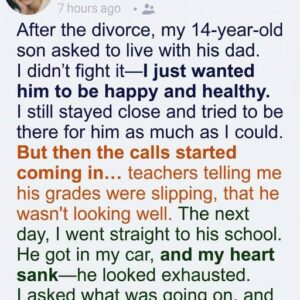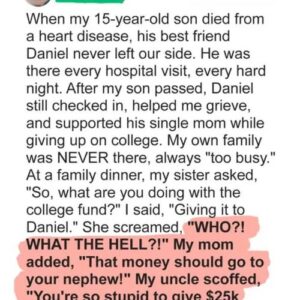Please use the sharing tools found via the share button at the top or side of articles. Copying articles to share with others is a breach of FT.com T&Cs and Copyright Policy. Email licensing@ft.com to buy additional rights. Subscribers may share up to 10 or 20 articles per month using the gift article service. More information can be found at https://www.ft.com/tour.
https://www.ft.com/content/085510bf-d5fb-41fa-a078-31550f400cb3?segmentId=b385c2ad-87ed-d8ff-aaec-0f8435cd42d9
Every September, a raft of articles appears about how to handle the stress of going back to school. This used to be for children worrying about finding their new classroom, or whether their friends will still like them. But now, much of the advice is aimed at soothing parents too. As we force summer feet into the shoes we only got around to buying yesterday, or screech at our middle daughter for having failed to mention her art homework, we are told to practice relaxation techniques (thanks for that) or to be better organised.
The US surgeon general Vivek Murthy has now upped the ante with an official warning that parental stress has become a public health issue. Given that his previous advisories dealt with firearm violence and social media, my first reaction was to roll my eyes at yet another dollop of gloom — enough to make a whole generation wary of conceiving at all. Is it really surprising that parents report higher levels of stress than other adults? Wouldn’t we be more worried if those with kids returned to the office with the same boast-list of books they’d read uninterrupted on the beach as colleagues who don’t have children?
Two statistics made me think again. Over the past decade, according to Murthy, parents have been consistently more likely to report high levels of stress than other adults. Nearly half of American parents feel overwhelming stress most days, compared with a quarter of other adults. Worries about money and social media are prominent. But even more arresting is the fact that two-thirds of them say they are lonely, against over half of those without children. This is happening in Britain too. A recent survey by Unicef UK found almost half of British parents feel overwhelmed, and a quarter lonely, all or a lot of the time.
We don’t associate loneliness with being part of a family. But these growing feelings of isolation may be linked to what Murthy calls “chasing . . . unreasonable expectations”. A shopkeeper I know almost cried recently as he told me the dentist had found cavities in his seven-year-old’s teeth. It happens, I said. No, he said, it must be our fault: even though we take such care to restrict sweets. Others see parenting as a zero-sum game: one teacher tells me some parents try to give their child an edge by talking down fellow pupils.
Fifteen years ago, a survey of parents in various countries found very different views of what traits they valued in their offspring. Italians spoke of being “simpatico”, the Dutch valued cleanliness, with Americans more likely to mention intelligence. Now, the European ideal of effortlessly Bringing up Bébé (in Pamela Druckerman’s account of French life) is giving way to Tiger Mother burnout.
There is ample evidence that parents in many developed nations are spending more and more time on their children. But a fascinating new analysis suggests the increased isolation they feel may be caused not simply by the upping of hours, but by the end of the old-style play date.
Lyman Stone, of the Institute for Family Studies, has analysed the past 20 years in America and concluded that most of the increase in time spent with children has come from fathers taking them along on “low-intensity” activities such as gardening or shopping. Mothers, meanwhile, are devoting a higher proportion of their time to doing hands-on activities with kids 1:1, and far less chatting with another mother while the kids play. Stone suggests this decline in parenting alongside friends in part reflects the increasingly divisive branding of different parenting styles.
Certainly modern parenting is performative, and competitive. To ask the WhatsApp group whether anyone has seen your son’s socks, or what time the match ends, is to expose the hopeless chaos of your life that you’ve been trying to conceal. Openly wondering why the school assumes modern parents have time to bake cakes or attend awards ceremonies bang in the middle of the working day can mark you out as not caring enough, even — gasp — “free range”.
The literature doesn’t help. When our first child was born, the parenting books I gorged on told me that at any moment I might fail to spot the signs of fatal meningitis; that I would ruin my child’s life if I went back to work; that a clean orderly environment was essential but that my child must also be exposed to germs to ward off allergies.
Today’s new parents get all of this plus neuroscience. Babies, once regarded as straightforward, now seem like bundles of neurons waiting to be fired up. In her book Neuroparenting: The Expert Invasion of Family Life, Jan Macvarish warned that increased awareness of how the brain develops is translating into too much angst about vocabulary, or missing a “critical period” for learning.
Meanwhile, the state and social media pile on the judgments. Last month, the TV star Kirstie Allsopp said that she had been reported to social services for letting her 15-year-old son go interrailing with a friend after his GCSEs.
When you’re already feeling stressed, being told not to pass your anxieties on to your children feels counterproductive: a recipe for piling on the pressure. But challenging society to support parents, and reduce isolation, is right. As the UK Covid-19 inquiry began its hearings this week on the impact of the pandemic on children, there will be much evidence about the traumatic impact of lockdowns on young people. But someone also needs to ask how parents are faring. We know that time spent with friends, which fell precipitously in lockdowns, has not recovered as robustly for parents as for non-parents. A big question is why.
camilla.cavendish@ft.com





